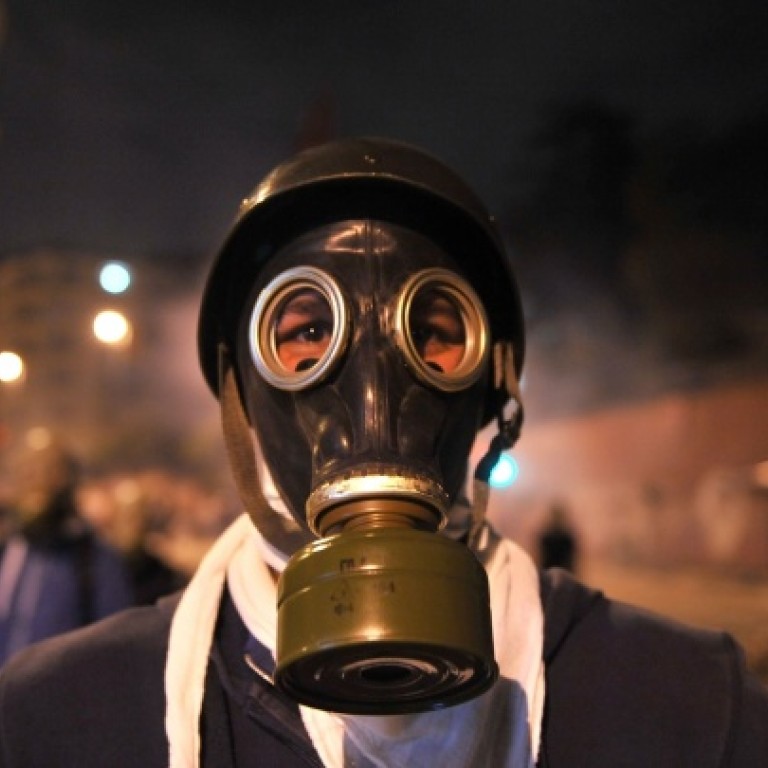
Turkey protesters defy plea to end unrest after government apology
Fresh violence erupted early on Wednesday as protesters defied a government plea to end days of deadly unrest, the biggest challenge yet to Prime Minister Recep Tayyip Erdogan’s decade-long rule.
Police used tear gas and water cannon on hundreds of protesters, who ignored warnings to disperse in Istanbul, Ankara and the southeastern city of Hatay, where a young protester died a day earlier.
“You are being unfair to us, that is enough!” one protester was seen yelling at the police after warnings to quit an area close to Erdogan’s Istanbul office.
Erdogan’s government earlier won praise from the United States for apologising to injured protesters, but that concession did not appear to have stemmed popular anger.
Thousands gathered at Istanbul’s Taksim Square for a sixth day, yelling defiance at Erdogan, who earlier has dismissed the protesters as “extremists” and “vandals”. He was in Algeria on the second day of a four-day official visit to North Africa.
The vandals are here! Where is Tayyip [Erdogan]?
“The vandals are here! Where is Tayyip?” yelled the crowd.
They accuse Erdogan, who has won three successive national elections, of imposing conservative Islamic reforms on the predominantly Muslim but constitutionally secular nation.
“If they step back, if they change something in Turkey, the conservatism and the things they’ve done, then maybe the crowd can go home,” said Didem Kul, a 24-year-old student in Taksim Square.
Turkish pipe music and singing blared over speakers as the crowd clapped along. The festive atmosphere was in stark contrast to the tense rallies of the past five days.
Even fans from rival football teams Galatasaray, Besiktas and Fenerbahce linked arms, united in protest.
Earlier on Wednesday, Deputy Prime Minister Bulent Arinc apologised to protesters who had been injured when the clashes erupted last week. The wave of protests broke out on Friday after police tear-gassed demonstrators at a peaceful rally against plans to build on an Istanbul park.
“I apologise to those who were subject to violence because of their sensitivity for the environment,” he said, though he added that his apology excluded “the rioters”.
“The government has learnt its lesson from what happened,” he added. “We do not have the right and cannot afford to ignore people. Democracies cannot exist without opposition.”
Two people have been killed in the clashes, officials and medics say, and rights groups say thousands have been injured. The government puts the figure at around 300.
Erdogan, whose Justice and Development Party (AKP) first took power in 2002, has accused the main opposition Republican People’s Party of having a hand in the protests.
Adding weight to the protest, the Turkish Confederation of Public Workers’ Unions (KESK), which represents 240,000 employees, launched a two-day strike on Tuesday.
Its spokesman Baki Cinar said it was too soon to assess the overall impact of the strike.
But he dismissed Arinc’s conciliatory statement.
“The apology is just damage control and only because they know they are stuck,” he said.
Another bigger union grouping, DISK, with 420,000 members, said it would join the strike and demonstrations on Wednesday.
The United Nations joined Turkey’s key strategic ally the US and other Western partners in voicing concern about reports of police violence. It called for an independent investigation into the allegations.
The White House praised Arinc for his statement on Tuesday.
“We welcome the deputy prime minister’s comments apologising for excessive force, and we continue to welcome calls for these events to be investigated,” White House spokesman Jay Carney said.
Turkey, a country of 75 million people, is an important ally of the United States in the region and has backed it notably in opposing Syrian President Bashar al-Assad in Syria’s civil war.
Sitting at the crossroads of East and West, Turkey has long aspired to join the European Union, which sets strict requirements on human rights standards for prospective members.
Opponents have accused Erdogan of repressing critics – including journalists, minority Kurds and the military – and of pushing conservative Islamic policies such as religious education reforms and a law curbing the sale of alcohol.
Erdogan told protesters they should wait to express their views in elections next year, when observers expect him to run for president.
“For me, democracy comes from the ballot box,” he said, insisting the disturbances would calm down by the time he had returned to Turkey on Thursday.
Italy said on Tuesday that it considered the violence had not undermined Turkey’s chances of joining the EU.
“We are confident that Turkey will overcome this difficult moment, proving itself to be a mature democracy,” Foreign Minister Emma Bonino said in a statement.
Although the Istanbul stock market had closed 10 per cent lower on Monday it recovered by nearly five per cent on Tuesday after Arinc’s comments.
